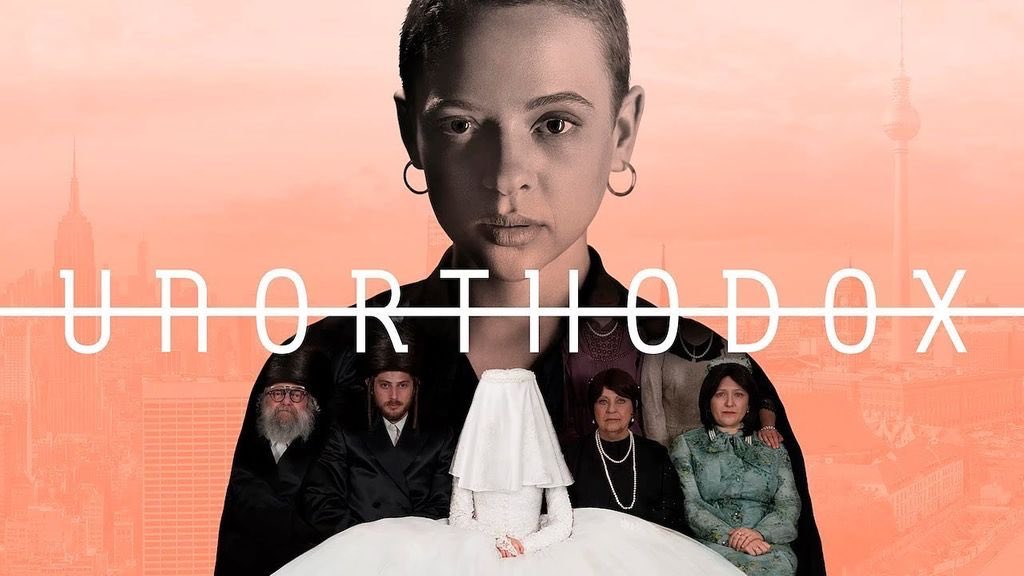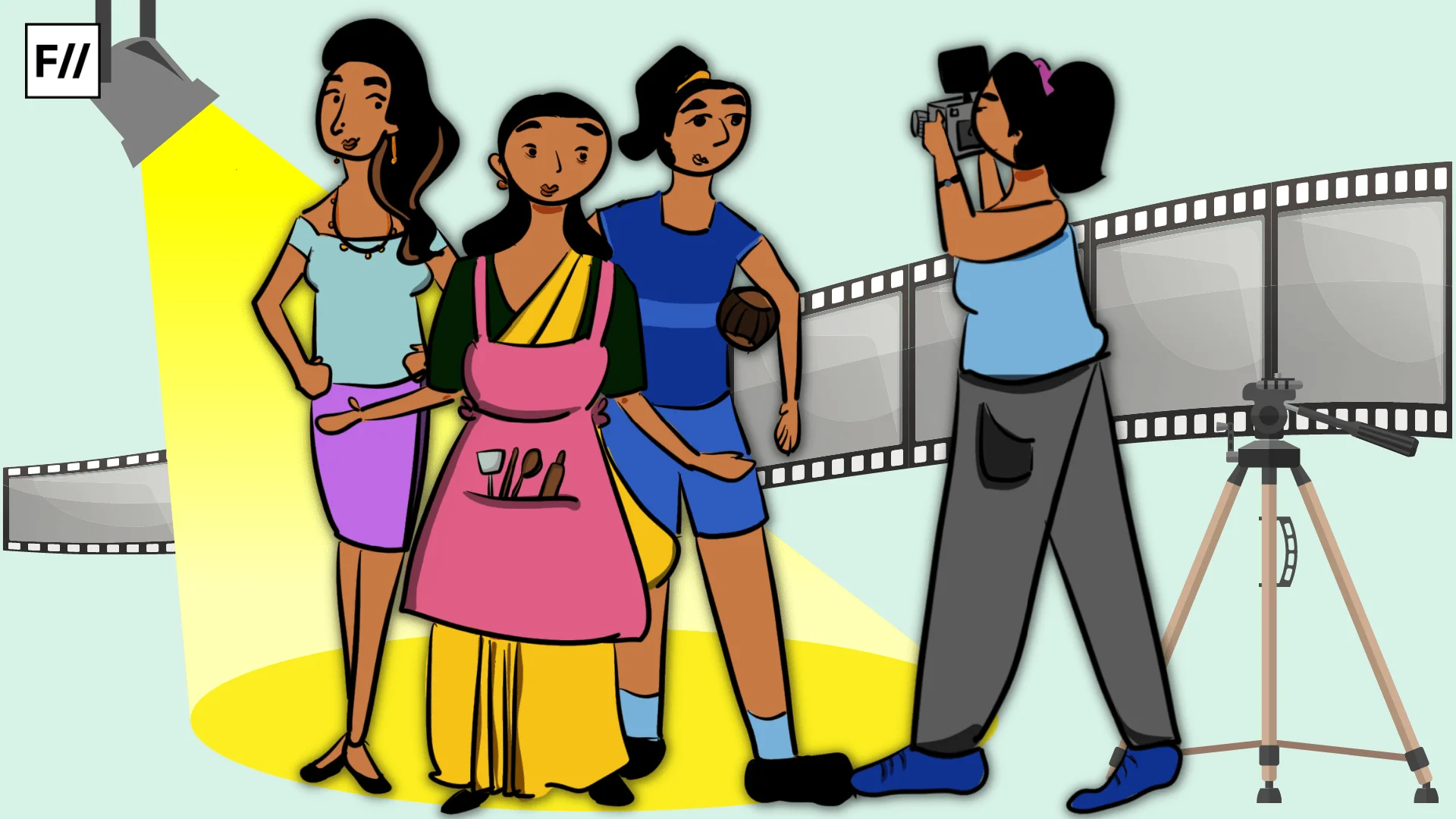“God expected too much of me. Now I need to find my own path” ~ Unorthodox, 2020.
The Netflix original series, Unorthodox based on the book Unorthodox: The Scandalous Rejection of My Hasidic Roots by Deborah Feldman, created by Anna Winger and Alexa Karolinski, exceptionally illustrates the story of conquering hope and freedom. The series portrays the escape of a 19-year-old girl to Berlin with the expectation of leaving behind her community and starting a secular life. The protagonist of the story, Esther Shapiro (played by Shira Hass) belongs to Hasidic Jew community in Williamsburg, Brooklyn. The series portrays her life story by juxtaposing the incidents of her past and present in four parts which enable the audience to empathize with her rejection of the Satnar community.
The religious community appears to be extremely closed knit as the history of holocaust haunts them till date. In spite of the community being characterized by strict conservative religious doctrines, there is a constant attempt of shielding from any form of ‘outside influence’ which shall challenge the process of safeguarding the community. Esther Shapiro addressed in the series as Esty was socialized to believe that ‘marriage and making family’ are inherently important roles of the women of the community. The scenes that are established in Williamsburg are in Yiddish language and they manage to give a detailed understanding of the rigidity and conservatism within the community which eventually led Esty to seek herself outside the community.
In Berlin, Esty’s visit to different places remarkably suggests her opening up and re-discovering of the new self in every step. It is significant to address her visit to the lake in Berlin, where while standing in water she takes off her wig, revealing her shaved head. The act symbolically represented her feeling of liberation from the shackles of her community. The religious doctrine of the community suggests how a married woman’s hair should never be seen by anyone other than her husband. Thus, these married women adhere to shaving their heads and choose to cover their head with a cloth or shieitel or wig. The disbelief amongst her family to find out her escape to no other place but Germany is extremely significant and ironic.

The Netflix original series, Unorthodox based on the book Unorthodox: The Scandalous Rejection of My Hasidic Roots by Deborah Feldman, created by Anna Winger and Alexa Karolinski, exceptionally illustrates the story of conquering hope and freedom. The series portrays the escape of a 19-year-old girl to Berlin with the expectation of leaving behind her community and starting a secular life.
While coming to Berlin, she felt like she finally broke free from her community, but her husband, Yanky (played by Amit Rahav) along with one of his cousin arrives at Berlin with the hope of bringing her back to the community, as per the order of the Rabbi (the spiritual leader and religious teacher in the Jewish community). They only adhered to taking such a decision as they discovered she was pregnant. The sense of entitlement with the ‘child’ as the collective possession of the community, is what led them to reach out for Esty, but not for her own sake.
Unorthodox illustrated how within the close community, the doctrine strictly delineates the role of being a man and a woman. While male members of the community are expected to spend their life indulging in scholarly study of religious text, the women of the family are anticipated to devote themselves in faith, family and home. But this custom exerted added pressure on married women as this only identified them as reproductive agents. When one of Esty’s friends in Berlin described these women as ‘baby-making machines’ but Esty immediately stood up against that by claiming, ‘I am not a baby-making machine’.
Also read: Film Review: My Happy Family Explores Women’s Agency To Choose Freedom
While men in the community decided on the rules and the regulations, it was the older women who acted as active enablers of those into practice. Esty’s interaction with these women throughout the narrative implied how women often occupy the role of agents of perpetuating patriarchy within families. Her struggles to play her ‘role’ in her arranged marriage and her experience of intimacy with her husband cannot be separated. Her interaction with her mother-in law, who advised Esty to be able to make her husband feel like a ‘king’ in the bed, and women’s role during sex as passive, suggests how the act of ‘sex’ was nothing but a venture with solely the outcome of procreation. Esty goes on to discover intimacy very differently in Berlin and realizes how her initial experience was nothing but violation.
Unorthodox illustrated how within the close community, the doctrine strictly delineates the role of being a man and a woman. While male members of the community are expected to spend their life indulging in scholarly study of religious text, the women of the family are anticipated to devote themselves in faith, family and home. But this custom exerted added pressure on married women as this only identified them as reproductive agents.
Esty came across a bunch of friends in Berlin who eventually helped her to find her way into a prestigious music school in the city. Her reaction after consuming ‘different’ food in Berlin for the first time beautifully illustrated how we are not only taught the rules but also our reactions to disregard other cultures often are prejudiced and defined. Her reunion with her mother, only to realize the latter too was a survivor like herself, illustrates how her narrative is not an isolated one.
Also read: 4 Women-Led Sitcoms To Binge Watch If You Are Feeling Low During Quarantine
The voices of these women in close religious communities are often silenced and erased. In spite of choosing Berlin as her destination of freedom, she is constantly compassionate about the historical oppression and violation, her community has faced in the same place, during the Second World War. She is neither completely forgetful of the past nor unwelcoming of her present opportunities. In the end, she denies to return to her roots as she prioritizes her sense of dignity and respect for herself. Her attempt of trying to find who she really is by exhibiting courage and revolution, resonate an unorthodox perspective.
References
Featured Image Source: Netflix
About the author(s)
Joyoti Chowdhury is a Sociology Student with the hope of emancipation to create an egalitarian reality.





Very well-written Joyoti! I love how you mentioned women as enablers of patriarchy along with the men in the community. This is something we don’t discuss as much. More power to you 🙂